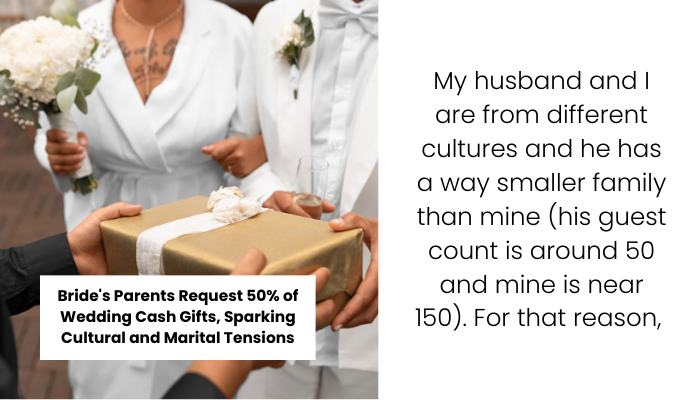Bride’s Parents Request 50% of Wedding Cash Gifts, Sparking Cultural and Marital Tensions
A newlywed couple faces a significant dilemma as the bride’s parents request half of the cash gifts from their upcoming wedding reception. The bride, a 24-year-old student, and her 27-year-old husband had a modest ceremony earlier in the year, funded by her parents. Plans for a larger reception in 2026 involve contributions from both families, with the bride’s parents covering the majority due to their extensive guest list. However, their demand for 50% of the cash gifts has led to a rift between the couple, highlighting the complexities of cultural traditions and financial expectations in blended families.
The bride, accustomed to sharing gift money with her parents during significant life events, sees the request as reasonable, especially since most guests are from her family’s side. Conversely, her husband, from a different cultural background, perceives the demand as inappropriate, believing parental contributions should be unconditional. This clash underscores the challenges couples face when navigating differing cultural norms and familial expectations.
Weddings, in particular, seem to bring out hidden expectations from who gets a say in the guest list to who feels owed something in return for their generosity
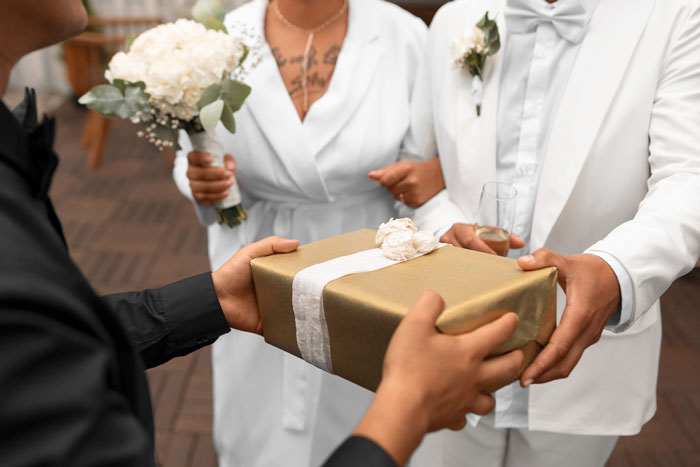
The author’s small and intimate wedding was paid for by her parents; however, she hopes to have a bigger reception in the coming year








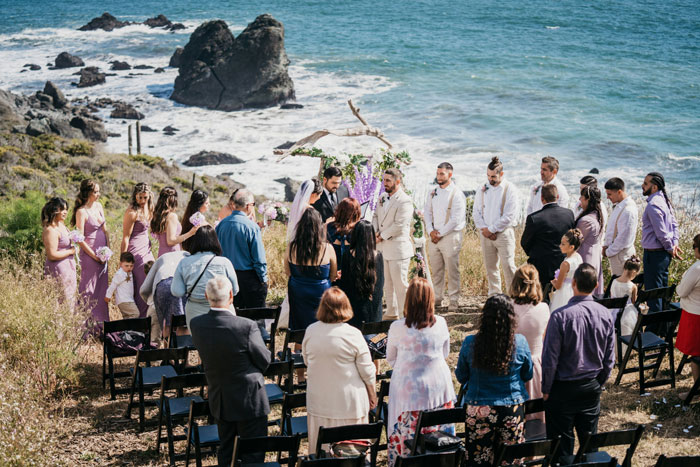




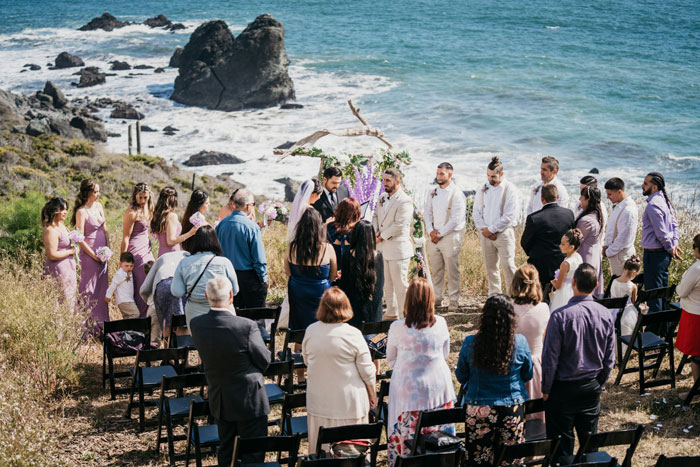

1. Cultural Norms Surrounding Wedding Gifts
In South Asian cultures, it’s customary for guests to present cash gifts, often in envelopes known as “shagun,” during weddings. These gifts are considered auspicious and are typically given in amounts ending with the digit one, symbolizing prosperity and continuity. While the practice of giving cash is widespread, the allocation of these gifts can vary. In some families, especially when parents bear significant wedding expenses, there’s an implicit understanding that they may receive a portion of the cash gifts to offset costs. However, this expectation isn’t universal and can lead to misunderstandings, particularly in intercultural marriages.
2. Financial Contributions and Expectations
Traditionally, the bride’s family in many cultures is expected to shoulder a substantial portion of wedding expenses. This financial responsibility often comes with certain expectations, including decisions about guest lists and event specifics. However, when parents request a share of wedding gifts in return for their contributions, it can blur the lines between support and obligation. Such arrangements should be approached with clear communication to prevent potential conflicts.
3. Navigating Intercultural Marriages
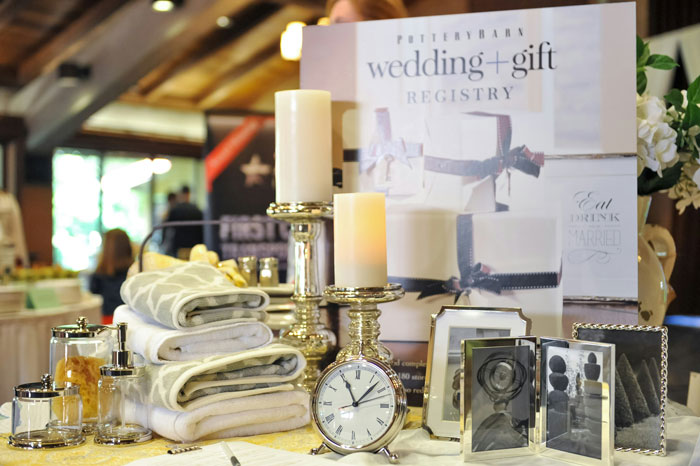
Intercultural marriages bring together diverse traditions, values, and expectations. Financial customs, especially concerning weddings, can differ significantly between cultures. For instance, while one culture might view parental contributions as gifts without strings attached, another might see them as investments expecting returns. Couples in such marriages must engage in open dialogues to understand and respect each other’s cultural backgrounds, ensuring mutual agreement on financial matters.
4. Establishing Boundaries and Mutual Respect
Setting clear boundaries with family members is crucial, especially when it comes to financial matters. Couples should discuss and agree upon their financial plans independently before involving extended family. This approach helps in presenting a united front and prevents external pressures from causing internal discord. Seeking guidance from financial advisors or counselors familiar with intercultural dynamics can also be beneficial in navigating these complex situations.
Netizens insisted that the author shouldn’t receive any financial help from her parents and just have a smaller celebration she could afford instead






In conclusion, while the bride’s parents’ request for a portion of the wedding cash gifts stems from cultural practices and financial considerations, it’s essential for the couple to communicate openly and establish mutual understanding. Balancing respect for cultural traditions with personal boundaries can help in fostering harmony both within the marriage and with extended families.

